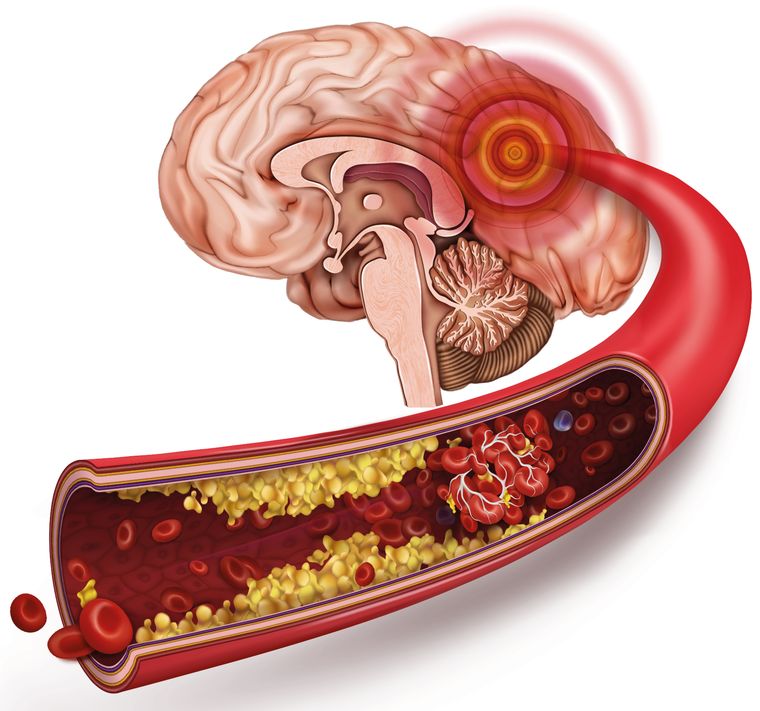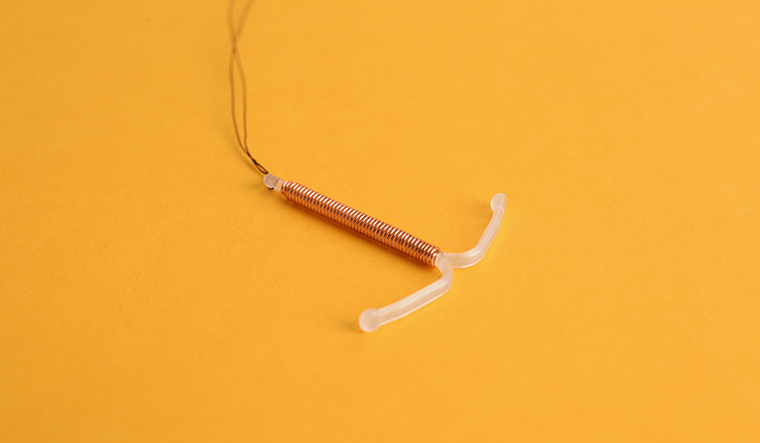ACCORDING TO a study published in the British Journal of Ophthalmology, people whose retina age faster than their real (chronological) age are more likely to die early.
Though the risks of illness and death increase with chronological age, they vary considerably among people of the same age, suggesting that a person’s biological age which is unique to each individual may be a better indicator of current and future health, the researchers explained.
The researchers used the deep learning technique to accurately predict a person’s retinal age from images of the fundus, the internal back surface of the eye.
They wanted to see whether a difference between the biological age of the retina and a person’s real age (retinal age gap) might be linked to an increased risk of death.
The researchers examined 80,169 fundus images taken from 46,969 adults aged 40 to 69.
They analysed the accuracy of their model using about 19,200 fundus images taken from the right eyes of 11,052 healthy participants. The researchers assumed that their retinal biological ages would be close to their chronological age.
The model predicted the retinal age with an overall accuracy of within 3.5 years to the real age.
The retinal age gap of the remaining 35,917 participants was then assessed. During an average follow up of 11 years, 1,871(5 per cent) participants died: 321(17 per cent) of cardiovascular disease; 1,018 (54.5 per cent) of cancer; and 532 (28.5 per cent) of other causes including dementia. And 51 per cent had a retinal age gap of more than three years, 28 per cent had a gap of five years, and 4.5 per cent had a gap of more than 10 years.
Those who had large retinal age gaps had a 49 per cent to 67 per cent higher risk of death, from causes other than cardiovascular diseases or cancer.
Did You Know?
Tall people might be at an increased risk for colorectal cancer. Height should be considered as a risk factor for colorectal cancer screening.
Cancer Epidemiology Biomarkers & Prevention
A clue about final moments
AN ACCIDENTAL recording of a dying man’s brain suggests that our lives may flash before our eyes as we die. The recordings showed that brain wave patterns in the 30 seconds before and after death were similar to those occurring during dreaming, memory recall, and meditation.
The researchers came upon this unexpected discovery when an 87-year-old patient with epilepsy suffered a heart attack and passed away during electroencephalography (EEG)—a test that detects abnormalities in the brain waves. This allowed the scientists to record the brain activity of a dying person for the first time.
The researchers had recordings of 900 seconds of brain activity around the time of death. They focused on the 30 seconds before and after the heart stopped beating.
“Just before and after the heart stopped working, we saw changes in a specific band of neural oscillations, so-called gamma oscillations, but also in others such as delta, theta, alpha, and beta oscillations,” the lead researcher said. “Through generating oscillations involved in memory retrieval, the brain may be playing the last recall of important life events just before we die, similar to the ones reported in near-death experiences.”
The study was published in the journal Frontiers in Aging Neuroscience.
Stay active in your seventies
JUST 20 minutes of daily exercise in your early 70s may help prevent major heart disease in your 80s. For the study published in the journal Heart, researchers examined whether exercise in early old age can help ward off heart disease and stroke in late old age.
The health and physical activity levels of 3,099 Italians, aged 65 and older, were first assessed between 1995 and 1997. Follow-up assessments were done four and seven years later.
Women were more likely to have more than four coexisting health conditions, including osteoarthritis, osteoporosis, and chronic kidney disease. Chronic obstructive pulmonary disease and diabetes were more common among men.
Walking, bowling and fishing were considered moderate physical activities, and vigorous physical activity included gym workouts, cycling, dancing and swimming.
The health of all participants was tracked via hospital records and death certificates up to the end of 2018.
Complete data were available for 2,754 participants, of whom 1,398 (60 per cent) were women. During the study period, 1,037 participants were diagnosed with heart disease, heart failure or stroke. Increasing levels of physical activity and maintaining an active lifestyle were linked to reduced risks of cardiovascular disease and death in both men and women. The biggest reduction was for coronary heart disease and heart failure in late old age.
Regular physical activity was associated with a 52 per cent lower risk of cardiovascular disease among men.
The greatest health benefits were seen in participants who exercised at age 70. The benefits were trending down after age 75, suggesting that exercising earlier in old age might have the most impact.
Bad days after a breakup
MEN ARE at an increased risk of mental illness, such as anxiety, depression, and suicide after a breakup.
For the Canadian study published in the journal Social Science and Medicine–Qualitative Research in Health, researchers interviewed 47 men who went through a recent breakup.
Most men developed new or worsening mental illness symptoms during and after a difficult relationship. Men often downplayed issues in their relationships, further worsening their problems. Their primary goal was to avoid conflict.
Stereotyped masculinity plays a major role in preventing men from seeking help. Following a breakup, men in distress often turned to alcohol and other substances to cope with feelings such as anger, regret, sadness, shame and guilt.
On the positive side, the study found that most men eventually sought help for their distress post-breakup. They utilised a variety of resources, including reading, exercise, therapy or support groups.
Did You Know?
An analysis of data from 204 countries and territories revealed that antimicrobial-resistant bacterial infections were directly responsible for more than 1.2 million deaths worldwide in 2019.
The Lancet
Radiofrequency ablation relieves chronic pain after knee replacement
ARTHRITIS of the knee is a major cause of disability, especially in the elderly. Many patients opt for total knee arthroplasty, or replacement, to cope with the intense pain and immobility associated with the condition. But up to 30 per cent of people who get a knee replacement continue to suffer from chronic and debilitating pain and stiffness in the knee.
A minimally invasive procedure called cooled radiofrequency ablation (C-RFA) was found to provide long-lasting pain relief after knee replacement surgery, according to a study presented at the annual meeting of the Radiological Society of North America.
A probe is guided through an introducer needle to target specific nerve locations around the knee while the patient is under local anaesthesia. The probe then imparts a low voltage current, or radiofrequency, to the deep sensory nerves around the knee.
The study included 21 patients who were suffering from persistent chronic pain after total knee replacement. They filled out questionnaires that assessed pain severity, stiffness, functional activities of daily living and use of pain medication before and after the procedure.
Questionnaire results up to a year after the C-RFA procedure showed that the patients experienced significantly less pain and stiffness, and they reported a statistically significant improvement in the quality of life.
Did You Know?
Mortality data from 21 countries from March 2020 to October 2021 shows that about 5.2 million children worldwide have lost a parent or caregiver to
Covid-19.
The Lancet Child & Adolescent Health
A better clot-buster
A NEWER clot-busting medication, tenecteplase, might be safer than the current standard medication, alteplase, for treating patients who suffered a stroke.
Stroke patients treated with tenecteplase were less likely to suffer serious complications involving bleeding into the brain compared to those given alteplase.
The majority of strokes are ischaemic strokes which are caused when a clot in a blood vessel obstructs blood flow to the brain. Alteplase has been the standard clot-dissolving drug for treating ischaemic strokes.
For the study published at the American Stroke Association's annual meeting, the researchers analysed data on 6,429 patients who received alteplase and 1,462 patients who received tenecteplase. On average, patients in both groups had experienced moderate ischaemic strokes.
Intravenous thrombolysis remains the mainstay treatment for acute ischaemic stroke. Symptomatic intracerebral haemorrhage (sICH) is one of the most feared complications of the treatment.
Researchers found that sICH was 43 per cent lower among patients who received intravenous thrombolysis with tenecteplase compared to those who received alteplase. Tenecteplase is also much easier to administer than alteplase.
Reduce meat consumption, reduce cancer risk
PEOPLE WHO do not eat meat or limit meat consumption have a reduced risk of cancer, according to a British study published in the journal BMC Medicine.
To examine the relationship between diet and cancer risk, the researchers analysed data collected from 4,72,377 British adults aged 40-70 who were cancer-free at the onset.
The participants reported how often they ate meat and fish. Among them, 52 per cent ate meat more than five times a week; 44 per cent ate meat less often; 2 per cent ate fish, but no meat; and 2 per cent were either vegetarian or vegan.
The researchers calculated the incidence of new cancer diagnoses over an average period of 11.4 years. 54,961 participants (12 per cent) developed cancer—including 5,882 colorectal, 7,537 postmenopausal breast, and 9,501 prostate cancers.
Overall, cancer risk was 2 per cent lower among those who ate meat five times or less per week; 10 per cent lower among those who ate fish but not meat, and 14 per cent lower among vegetarians and vegans, compared to those who ate meat more than five times per week.
IUDs as effective as tubal ligation for pregnancy prevention
INTRAUTERINE devices (IUDs) are as effective as tubal ligation in preventing pregnancies and causing fewer side effects, according to a US study published in the Journal of General Internal Medicine.
This study questions the widely held notion that tubal ligation is more effective than an IUD to prevent unwanted pregnancies. Tubal ligation requires surgery and is permanent, while an IUD can be easily removed when pregnancy is desired. To compare the safety and effectiveness of the two contraceptive methods, the researchers examined six years of insurance claims data from more than 83,000 recipients who received either a tubal ligation or an IUD to see how many of them became pregnant within a year.
It was revealed that 2.4 per cent of those who got levonorgestrel (hormonal) IUDs and 2.9 per cent of those who got copper IUDs got pregnant, compared to 2.6 per cent of those who got tubal ligations.
Those with IUDs were less likely to get infections or have procedure-related complications, and more than six months later, had less pelvic, abdominal and genitourinary pain compared to those who had tubal ligations.
“Patients should be encouraged to try IUD before going to the operating room for a permanent procedure,” said the study author.
Did You Know?
Drinking as little as a pint of beer or a glass of wine daily was associated with reductions in brain volume equivalent to two years of ageing. The more drinks a person had, the greater the shrinkage in brain volume.
Nature Communications
Drugs of double purpose
ACCORDING to a British study published in the journal Alzheimer’s & Dementia, erectile dysfunction drugs like Viagra may also help treat vascular dementia and preserve brain health. These drugs treat erectile dysfunction by increasing blood flow to the penis. The researchers wanted to test if these drugs can also increase blood flow to the brain in older people with narrowing of the brain arteries, which can lead to vascular dementia and strokes.
"Narrowing of the brain arteries is a common contributor to cognitive decline in older people and currently has no treatment," the lead researcher said.
The researchers recorded the brain blood flow of the participants after they received either a single dose of tadalafil, a drug like Viagra, or a placebo.
While there wasn't any considerable difference in brain blood flow between the two groups, participants older than 70 showed increased blood flow in the white matter of the brain, the area most important for vascular dementia.










